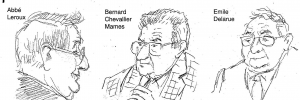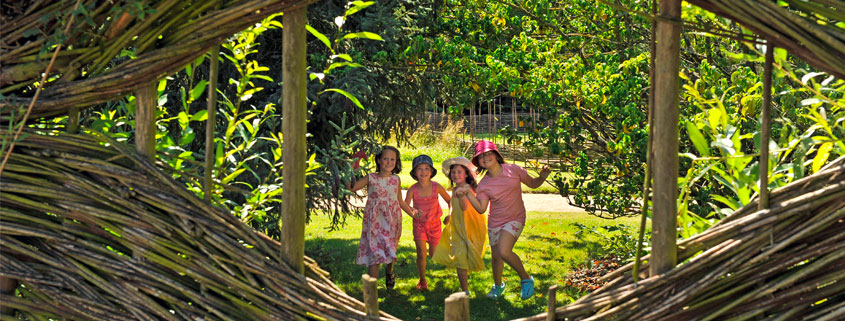MAJO association
For the past 50 years, the aim of Association MAJO (association which focuses on popular education – a collective effort in which a high degree of participation is expected from everybody) has been to welcome young people from all backgrounds, both on an individual basis, accompanying them on their chosen career path whilst respecting their independence, their individuality and their past, and on a group basis during recreational, cultural or sporting trips at the heart of Sologne in the Loire Valley.
To carry out this mission, the Association is committed to the ongoing training of its teams and to maintaining a strong community spirit.
Patrick MARCEAU
President of MAJO association
Emmanuelle POSSON
Head Chief Manager of MAJO association
The founding fathers

It all started when Maurice Leroux, a key figure within the world of MAJO, felt restricted at his school in Villefranche sur Cher and moved to the former Normant free school at Rue de la Pierre. With the help of the Chamber of Commerce, he created what would become the “Chamber of Commerce” workshops, with the aim of training young people in metal trades (fitters, turners and milling machine operators). Very quickly, housing of these young people became a problem, hence the idea to open a Youth Workers Centre. People of good will, many already involved in community life and interested in others, set up an association according to the law of 1901, creating the first Board of Directors with Bernard Chevalier-Mames as president. In October 1958, MAJO Association opened its doors in Rue de la Pierre in rather difficult conditions.
The school had some 50 students and MAJO housed about 25 residents.
Preparing young people to enter the world of work, to self-manage and to take responsibility.
such were the goals announced Bernard CHEVLLIER-MAMES who spent his entire career as an inspector of taxes in Romorantin.
It became clear that a youth worker centre, worthy of the name, needed to be built. The FJT (youth workers centre) was born.
Start of MAJO
Along with the development of the centre in Rue de la Pierre from 1958 to 1963, the Board of Directors visited other FJT centres in the Paris region and worked on further requirements. Roger GRUET put his expertise as a chartered accountant to good use in his role as treasurer of the association; thanks to him a little wishful thinking was able to become a reality.
At that time, business development took the demand to a whole new level and the need to accommodate young workers became essential. The project, which had planned for 50 beds at the start, quickly developed to 100 beds due to the high demand. Partners were urgently needed. CAF (child benefit office) became involved, as well as Romorantin town council. The next steps for MAJO Association were to join the National Union of FJT’s, to create a collective labour agreement because MAJO’s administrators were to become employers …. These were desperate times and everyone needed to lend a hand, even in the kitchen. Roles such as director, and FJT manager needed to be created and filled.
It could only succeed if we all worked wholeheartedly, even in our leisure time.
says Emile DELARUE, Catholic activist at the JOC youth organisation from the age of 15, Director of the CAF child benefits office and the URSSAF social security contributions office, as well as town councillor from 1953 to 1955, deputy Mayor from 1959 to 1962 and President of the MJC (community arts and youth centre).
The first brick of the new centre was laid in July 1965 and it opened its doors in 1967.
The development
Growth continued, so much so that in 1972 the Chamber of Commerce also opened a youth worker’s centre, helping MAJO Association to progress further.
In the 80s, due to the economic and structural realities, MAJO’s administrators had to come up with a new development plan to ensure the sustainability of what was already in place. New audiences needed to be targeted by branching out into other fields of activity.
Jean Monnet International Centre for groups (school trips, training courses, nature courses etc) was created and a restaurant was opened. Since 1966 and till the 31/12/2014 the association will be managing Tournefueille*** municipal campsite. MAJO currently employs 23 people.

